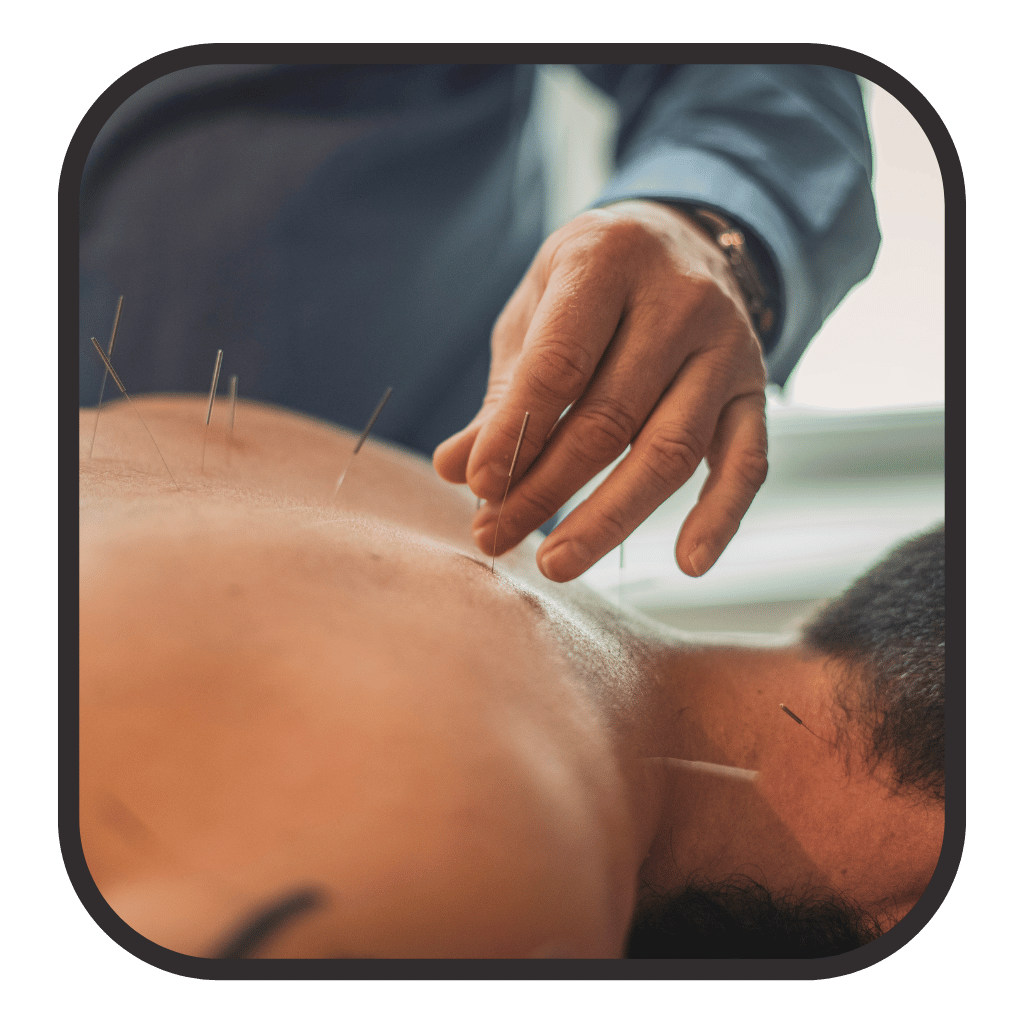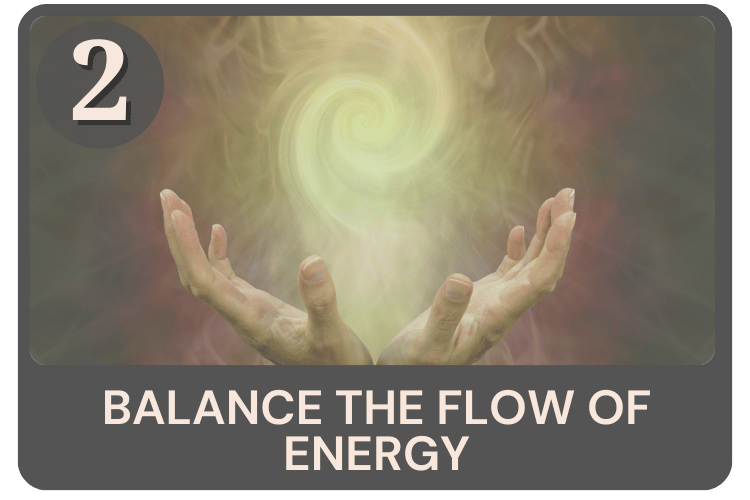Acupuncture

Acupuncture
What exactly isAcupuncture?
Acupuncture works by sticking super-thin needles into specific points on your body. These points are believed to be connected to pathways that carry energy, called Qi (pronounced "chee"). When the needles are inserted, they stimulate nerves and trigger your body's natural pain-relieving chemicals, like endorphins. This can help reduce pain and promote healing. It's kind of like flipping switches to get your body's natural healing powers flowing smoothly again.
Acupuncture Can Help With
✔ Back Pain
✔ Neck Pain
✔ Osteoarthritis
✔ Migraines
✔ Headaches
✔ Anxiety
✔ Stress
✔ Insomnia
✔ Allergies
✔ Sinus Issues
✔ IBS
✔ Nausea
✔ Infertility
✔ Vomiting
✔ Menstrual Cramps
✔ Menopause
✔ Asthma
✔ Neuropathy
✔ Sports Injury
✔ Fibromyalgia
✔ Postoperative Pain
✔ Recovery
Common Questions Asked About Acupuncture
Acupuncture is a traditional Chinese medicine practice that involves inserting thin needles into specific points on the body to stimulate energy flow or “qi” (pronounced chee) to promote healing and alleviate pain.
According to traditional Chinese medicine, acupuncture works by balancing the flow of energy, or qi, along meridians or pathways in the body. From a Western perspective, acupuncture may stimulate nerves, muscles, and connective tissue, triggering the body’s natural painkillers and promoting blood flow.
Acupuncture is commonly used to treat various conditions, including chronic pain (such as back pain, neck pain, and osteoarthritis), headaches, migraines, anxiety, depression, insomnia, nausea, and more. It’s often used as a complementary therapy alongside conventional medical treatments.
When performed by a qualified and experienced practitioner using sterile needles, acupuncture is generally considered safe. Side effects are rare but may include soreness, bruising, or minor bleeding at the needle insertion sites.
An acupuncture session typically lasts 30 to 60 minutes. The duration may vary depending on the condition being treated and the practitioner’s approach.
Acupuncture is commonly used to treat various conditions, including chronic pain (such as back pain, neck pain, and osteoarthritis), headaches, migraines, anxiety, depression, insomnia, nausea, and more. It’s often used as a complementary therapy alongside conventional medical treatments.
Acupuncture needles are extremely thin, so most people feel little to no pain during needle insertion. Sensations may vary from person to person, but any discomfort is usually minimal and fleeting.
During an acupuncture session, the practitioner will first conduct an assessment of your condition and health history. You’ll then lie down on a treatment table, and the practitioner will insert thin needles into specific points on your body. You may feel sensations like tingling, warmth, or a dull ache at the insertion sites. Afterward, you’ll typically rest for a period while the needles remain in place.
Many insurance plans offer coverage for Acupuncture, but the extent of coverage can vary depending on your specific plan and provider. It’s recommended to contact your insurance company to verify your coverage and any limitations or requirements, such as referrals or preauthorization.
Have More Acupuncture Questions? We're Here to Help.
We accept most plans forAetna, Humana, United Healthcare, Medicare, Optum, and Blue Cross Blue Shield









